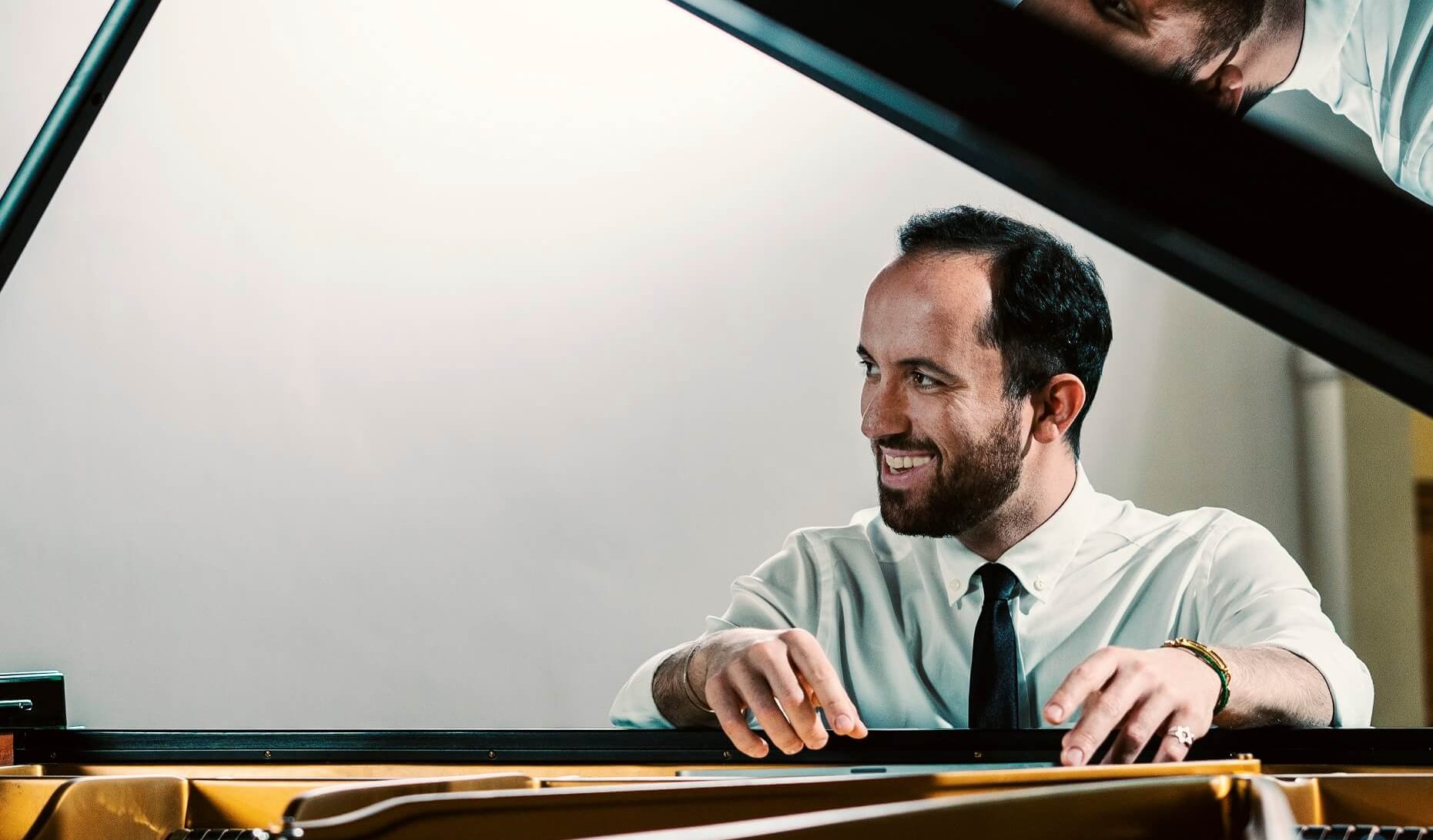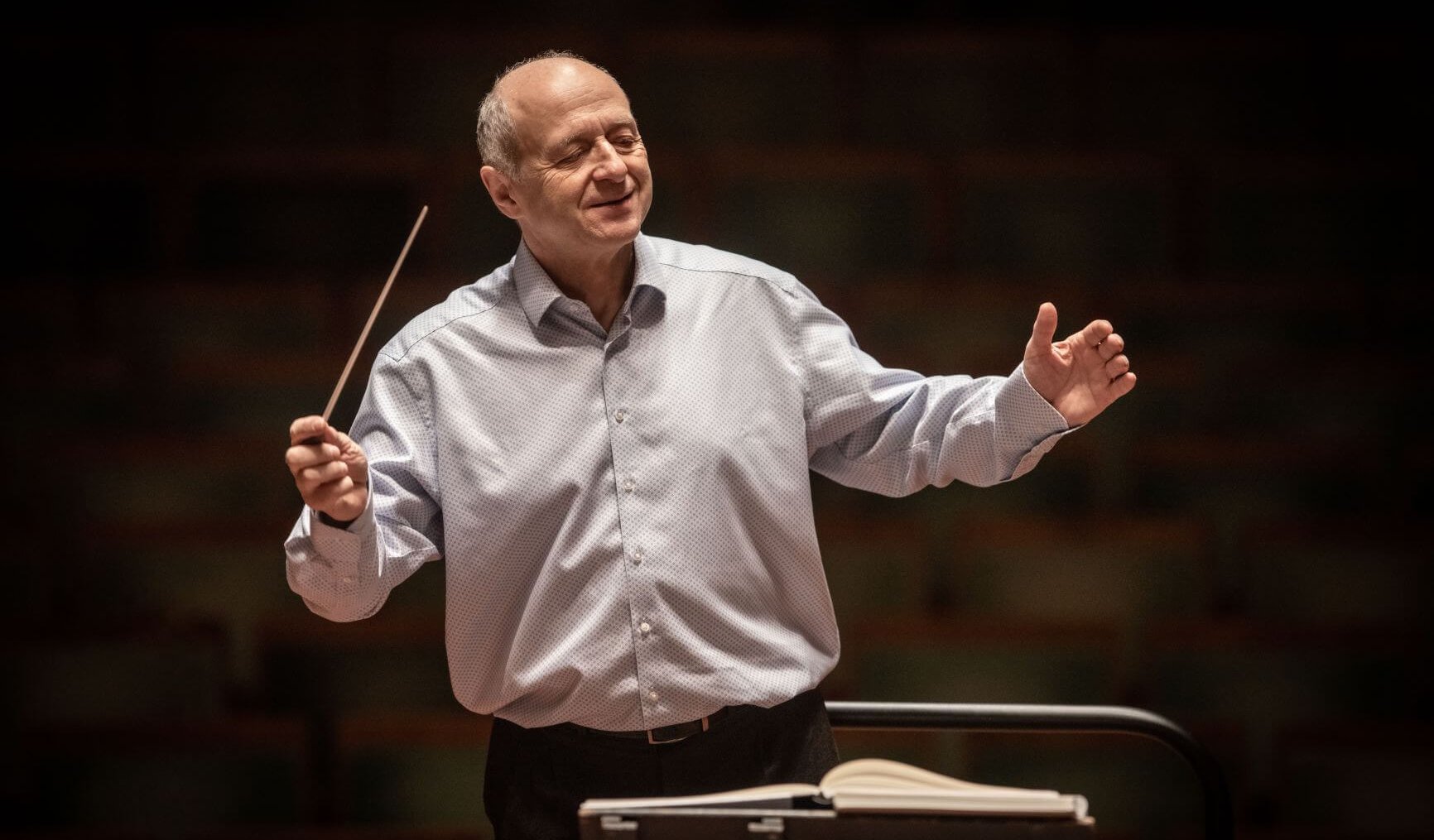

Program
Featuring
Other information
The event is about 2.5 hours long.
About the event
“Citizen. European. Pianist.” These are the three words Igor Levit uses to describe himself, the musician who will perform all of Prokofiev’s piano concertos at three concerts, with the Budapest Festival Orchestra. Described by The New York Times as “one of the essential artists of his generation,” Levit this time will play the solo in the composer’s most difficult, second piano concerto. The solo of Piano Concerto No. 2 was one that posed a significant challenge even for Prokofiev, and to this day only the most daring pianists are willing to perform it. The piece is introduced by the orchestral version of Prokofiev’s chamber overture written for original Hebrew themes; after the intermission, stories take center stage. Prokofiev himself composed three different suites from his ballet Cinderella, paying tribute to Tchaikovsky; upending the original order of the movements of the ballet, they nonetheless provide a good presentation of the plot of the three movements. This time, Iván Fischer selected movements from two suites for his Cinderella interpretation.
For his own works, Prokofiev almost never used folk music melodies or ones borrowed from other composers. This is why this overture, written for Hebrew themes, occupies such a special place in his oeuvre; it is more than a simple exercise in style. It is a rethinking of real Hebrew melodies. The composer was commissioned to write the piece in 1919 in the United States by clarinetist Simeon Bellison, who presented Prokofiev with a book of songs to serve as inspiration. Prokofiev rejected the request, but then fell in love with the world of the melodies after all. He sketched out the piece – originally conceived for the clarinet, a string quartet and the piano – in just one day, and then finalized it in less than two weeks. It presents and explores two themes in detail, evoking the world of the klezmer.
Prokofiev composed his Piano Concerto No. 2 in 1913, in response to criticism of his first piano concerto, and to commemorate his pianist friend Maximilian Schmidthof, who had committed suicide. The composer was accused of “futuristic impertinence” following the scandalous premiere of the piece. After the manuscript was lost in a fire, Prokofiev recreated and reworked the piece from memory. The version we know today, of which the composer said “the cats on the roof make better music,” is a work in four movements. Following the overture, where romanticism clashes with the grotesque, a scherzo lasting a few minutes is next; and after a sluggish, wry and grandiose intermezzo, the concerto concludes with a stormy finale.
Glass shoes, a pumpkin carriage, dwarfs jumping out of the clock striking midnight – yet Prokofiev’s Cinderella was composed during the darkest years of global conflict, between 1940 and 1944. The piece premiered only after the conclusion of the war, in 1945, in Moscow. The composer wrote orchestral suites from the ballet, but these were not limited to simply arranging various select numbers from the original score back-to-back: he transposed them, expanded them and changed their order. The first two suites contain almost only the music from the first two acts; they conclude with the end of the ball. In the third, the prince finally seeks out Cinderella.
Did you know? Prokofiev’s Overture premiered in New York on February 2, 1920, with the participation of the composer; the second version of his Piano Concerto No. 2 was performed for the first time in Paris on May 8, 1924, with the composer performing the solo and Serge Koussevitzky conducting; Cinderella premiered in Moscow on November 21, 1945, with Yuri Fayer conducting; the Budapest Festival Orchestra most recently performed the Overture on December 1, 2016 (conductor: Iván Fischer); the orchestra most recently played Piano Concerto No. 3 on January 28, 2014 (soloist: Andrey Korobeynikov; conductor: Iván Fischer); the BFO most recently performed the Cinderella Suite on February 4, 2023 (conductor: Iván Fischer).
Contemporary events: French composer Darius Milhaud’s piece The Ox on the Roof premiered in Paris on February 21, 1920 / The first Salzburg Festival opened on August 22, 1920 / English author Agatha Christie’s first detective novel, The Mysterious Affair at Styles, was published in 1920 / German painter Hans Baluschek painted his depiction City of Workers in 1920 / Austrian-Jewish author Joseph Roth’s novel Hotel Savoy was published in 1924 / American astronomer Edwin Hubble discovered the presence of galaxies beyond the Milky Way in 1924 / Russian composer Dmitri Shostakovich’s Symphony No. 9 premiered in Leningrad (today’s Saint Petersburg) on November 3, 1945 / Germany capitulated unconditionally on May 8, 1945; the Second World War ended following Japan’s surrender on September 2, / Croatian-born Serbian author and later recipient of the Nobel Prize for literature, Ivo Andrić’s novel The Bridge on the Drina was published in 1945